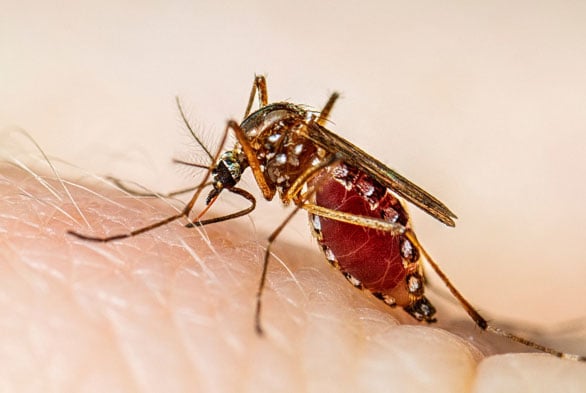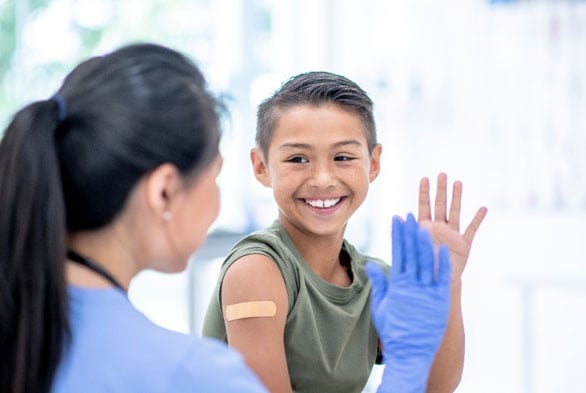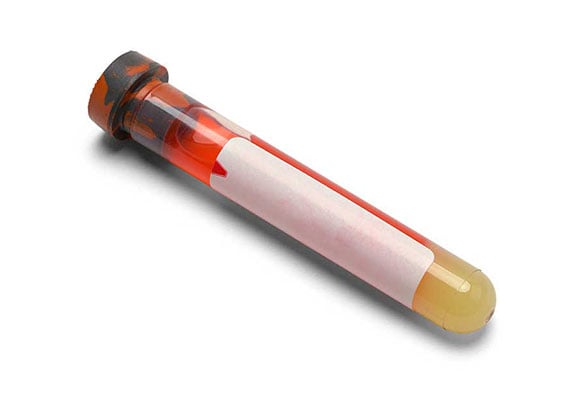A Safe and Effective Vaccine to Prevent Dengue Is Approved
A dengue vaccine is now approved for use in children aged 9–16 years with laboratory-confirmed previous dengue virus infection and living in dengue-endemic areas (where dengue occurs frequently or continuously). Endemic areas include some U.S. territories and freely associated states. The vaccine is not approved for use in U.S. travelers who are visiting but not living in an area where dengue is common.
About the Dengue Vaccine, Dengvaxia
- Dengvaxia is approved for the prevention of dengue caused by all four dengue viruses. It is a live attenuated (weakened) virus vaccine.
- Children need three doses of the dengue vaccine, given at six-month intervals, for full protection.
- The U.S. Food and Drug Administration approved Dengvaxia for use in children and adolescents 9–16 years old with laboratory-confirmed evidence of a previous dengue virus infection and living in areas of the United States where dengue is common.
- In June 2021, the Advisory Committee on Immunization Practices recommended the use of Dengvaxia to prevent dengue in children aged 9–16 years, with laboratory-confirmed previous dengue virus infection and living in areas where dengue is endemic.
- Dengue is common in the U.S. territories of American Samoa, Puerto Rico, and the U.S. Virgin Islands, and the freely associated states, including the Federated States of Micronesia, the Republic of Marshall Islands, and the Republic of Palau.
Laboratory Confirmation of a Previous Infection Is Required
- Before vaccination with Dengvaxia, children need to have laboratory evidence of a previous dengue infection.
- Healthcare providers can confirm a previous dengue infection with results from a specific type of laboratory test (dengue RT-PCR rest or dengue NS1 antigen test).
- Providers can also confirm a previous infection by ordering blood tests (pre-vaccination screening).
- If test results are positive, the child can be vaccinated.
- If test results are negative, the child won’t be able to get vaccinated. They can get retested in one or two years.
- In children who have not already had a dengue infection, Dengvaxia increases the risk of hospitalization and severe illness if the child gets dengue after vaccination.
Reasons to Get Vaccinated
- Scientists, physicians, and public health professionals specializing in dengue virus and vaccines have reviewed all the data and recommend this vaccine for preventing dengue in children who have previously had dengue.
- Dengue can be caused by any of the four dengue types: dengue 1, 2, 3, and 4.
- People can be infected with dengue up to four times in their life.
- A person’s second dengue infection is most likely to lead to severe illness.
- Dengue can be life-threatening disease.
- There is no medicine to treat dengue. Mild symptoms can be treated at home, but severe dengue requires hospitalization.
- Children are at the highest risk of hospitalization with a second dengue infection.
- Every dengue infection has a risk of hospitalization and severe illness.
- To date, we know that the vaccine can provide protection against dengue for at least 6 years. In time, we will learn more about how long vaccine protections lasts.
CDC Media Relations
404-639-3286
media@cdc.gov

“Dengue is a growing public health problem. When dengue outbreaks occur, large numbers of people get infected in a short period of time. Because we have limited tools to control dengue, having a safe and effective vaccine available to protect children is a step in the right direction in our fight against this mosquito-borne disease.”
Gabriela Paz-Bailey, MD, PhD, MSc, DTM&H
Chief, Dengue Branch, National Center for Emerging and Zoonotic Infectious Diseases



